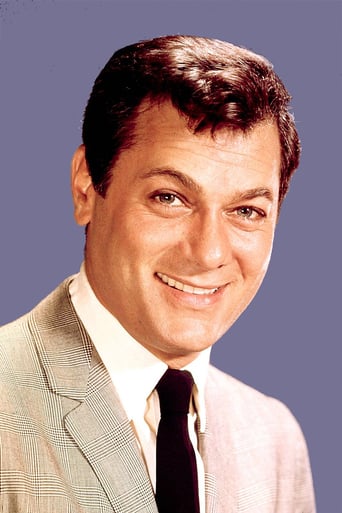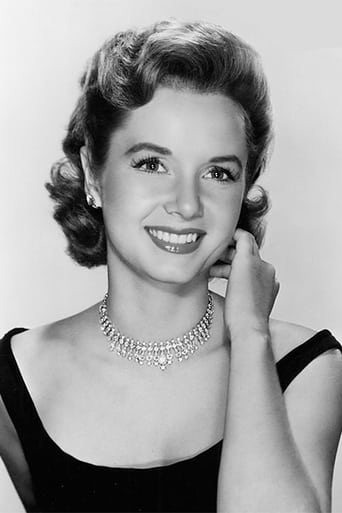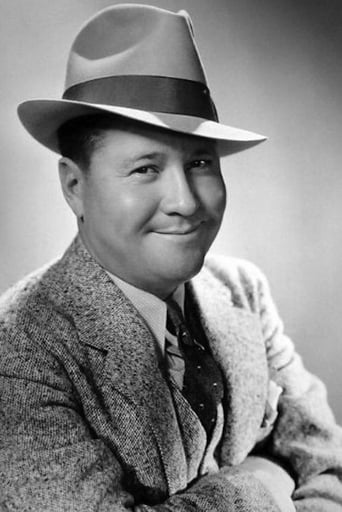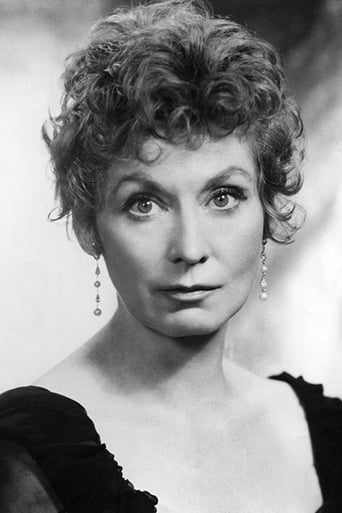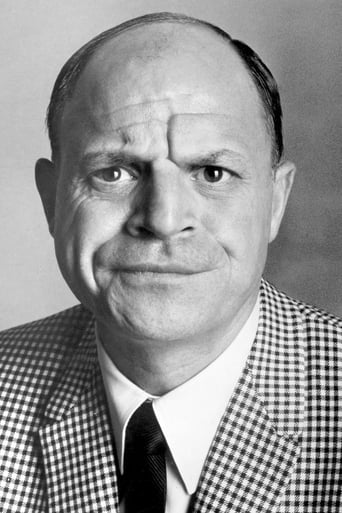StunnaKrypto
Self-important, over-dramatic, uninspired.
Nicole
I enjoyed watching this film and would recommend other to give it a try , (as I am) but this movie, although enjoyable to watch due to the better than average acting fails to add anything new to its storyline that is all too familiar to these types of movies.
dougdoepke
An ambitious jazz musician tries to make it in The Big Apple despite hardships. Meanwhile he befriends a desperate taxi dancer trying to hold on to her self-respect.The 105-minutes amounts to a sour valentine to New York City. The ending is predictable from the start. Why else cast two big Hollywood stars in the leads. The fact that Peggy (Reynolds) and Pete (Curtis) finally get together is not because of the City, as we might expect, but in spite of it. Thus the screenplay breaks with Hollywood convention of big cities with a soft heart. Note, for example, how the landlady's morning grouch gets quickly reflected in other grouchy New Yorkers.. That sort of uncompromising attitude may be the movie's best part. Otherwise, it's Reynolds breaking with her malt shop image, as a hard case who registers zero smiles throughout. At the same time, the effort to break with the Tammy image (Tammy And The Bachelor, {1957}) is too pointed and resolute to be convincing. Curtis, on the other hand, is fairly amiable, and not quite as miscast as Reynolds. Still, his Bronx accent sort of comes and goes for a guy supposedly from Milwaukee. Having two stars at the peak of popularity also means giving them adequate screen time to satisfy their fans. But that also means padding a slender storyline with lots of talk that too often drags out the runtime. Note too, how awkwardly the script plays with the key topic of prostitution, a word or even concept that dare not speak its name, thanks to the suffocating Production Code. Anyway, Oakie and Medford supply subtle amusement, while Rickles chews the scenery like he's starving for attention. All in all, it's a 105-minutes that doesn't wear well, despite being cutting edge at the time. All in all, I'm glad that Reynolds soon went back to the personality roles she was so good at.
ianlouisiana
Not quite innocent,but not really guilty either;that's Miss Debbie Reynolds in "The Rat Race".Many men are susceptible to a woman with a slightly bruised aspect to her and Mr Tony Curtis is no exception. It's a movie where "10 cents a dance" meets "Scrapple from The Apple" as cool jazz man Curtis shares an apartment with broke and weary taxi dancer Reynolds who has unwisely accepted a large loan from her boss Mr Don Rickles who is keen on her repaying him in the traditional showbiz manner. Daring for its time in its acceptance of the ambivalence of the character played brilliantly by Miss Reynolds,the movie gives a fairly bleak view of New York nearly fifty years ago,an era we are frequently led to believe nowadays was a golden one indeed.Clearly not if you were struggling in the lower stratum of the entertainment profession. Garson Kanin's play was 20 years ahead of its time.Less bleak than its contemporary "The Connection",but quite shocking for mainstream audiences with its portrayal of the bottom feeders of show business,the bullies,the pimps,gangsters and the compromises decent young people were forced to make to follow their chosen paths.Not to mention an unmarried couple living together. There is some fairly belicose Elmer Bernstein music diffused by an extract of typical late 1950s West Coast cool and Mr Curtis is very convincing as the aspirant jazzer with integrity (i.e.no money) Sedate by today's standards,"The Rat Race" marked a transition from 1950s movies to 1960s movies in content and tone.Not until "New York,New York" was there a more impressive portrayal of an average saxophone player and his showbiz lady,and my goodness how the movies - and the world - had changed by then.
Martin Pasko
If Garson Kanin's stage version were successful enough to earn a movie treatment by producers Perlberg and Seaton, whose adaptation of Clifford Odets's "The Country Girl" is famously exquisite, one can only assume that the play was more honest and less preposterously disingenuous than this laughable adaptation.Written by Kanin himself, who must have swallowed a fair amount of bile at the bowdlerizing mandated by the Hollywood Production Code, the film addresses its central question, which appears to be whether "dance hall girl" Debbie Reynolds (!) is or isn't a prostitute, with pages and pages of jaw-droppingly elliptical dialogue that bears no resemblance to human speech -- lines on the order of, "I'd never think you'd...you know..." and "How could you think I'm the kind of girl you think I am?" Those are not necessarily exact quotes, but you get the idea.The film is sunk by other equally bizarre choices at every turn, including not only the female lead's spectacular miscasting but her co-star's as well. Presenting Tony Curtis as a Midwestern naif being conned by heartless Manhattanites produces such howlingly funny utterances as "And on my foist day in New Yawk!" '30s Paramount comedy star Jack Oakie and Kay Medford, Dick Van Dyke's mother in the stage version of "Bye, Bye, Birdie," comprise a kind of greasy-spoon Greek chorus, a bartender and his only barfly, Reynolds's landlady, whom we first meet sitting at the bar drinking orange soda! In this Times Square saloon which, like many other sets in the film, reveals the art director's painful fascination with red walls, there is more mugging going on than in Central Park.But all of this is topped by the grotesquely overwrought, bug-eyed and nostril-flaring performance of Don Rickles, who quickly demonstrates why he found his true calling in standup rather than film acting. You're better off reading the play, but only reading it, because no impresario has the bad taste to mount a revival of it any more.
ivan-22
I loved this movie about two struggling young people and the friendship and love that grows out of those struggles. You won't find any glamour in this film, but it manages to be much more beautiful than many a movie oozing pearls, silk and mahogany. All characters are interesting, likeable and well-drawn. Rickles is fantastic as an uncouth, vulgar boss, the personification of a soul destroyed. Everything is just right. As usual, it is small movies that reach the greatest heights. I once saw screenwriter Kanin and his wife Ruth Gordon on "Donahue". I'm sorry I didn't take any notes.

